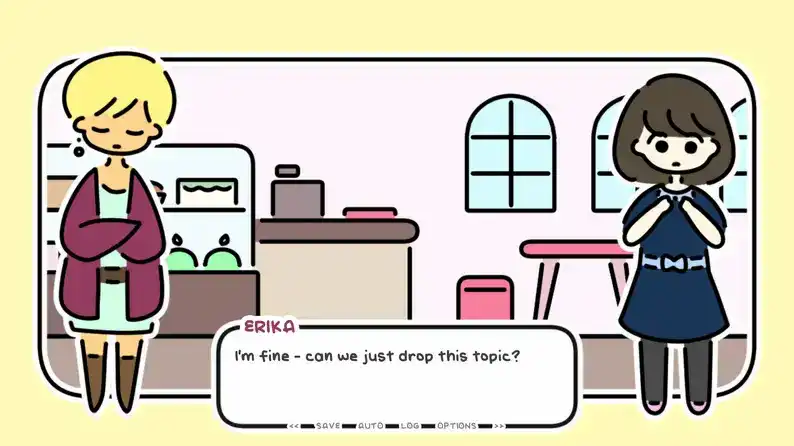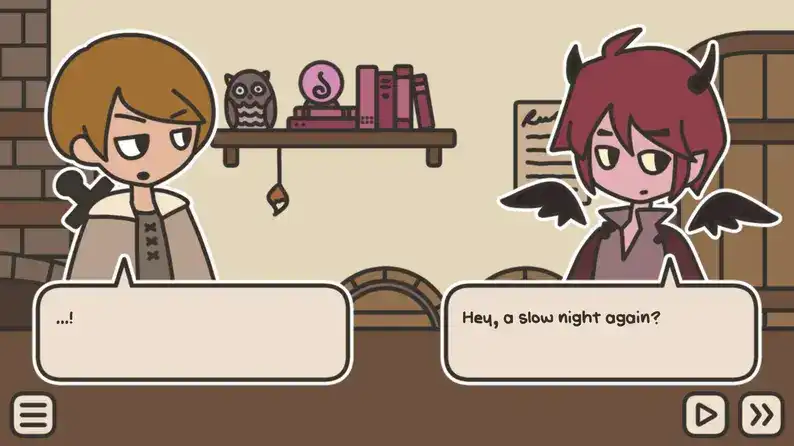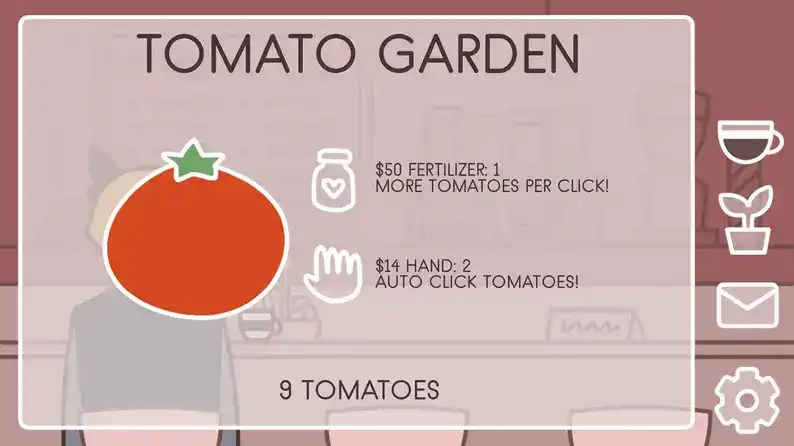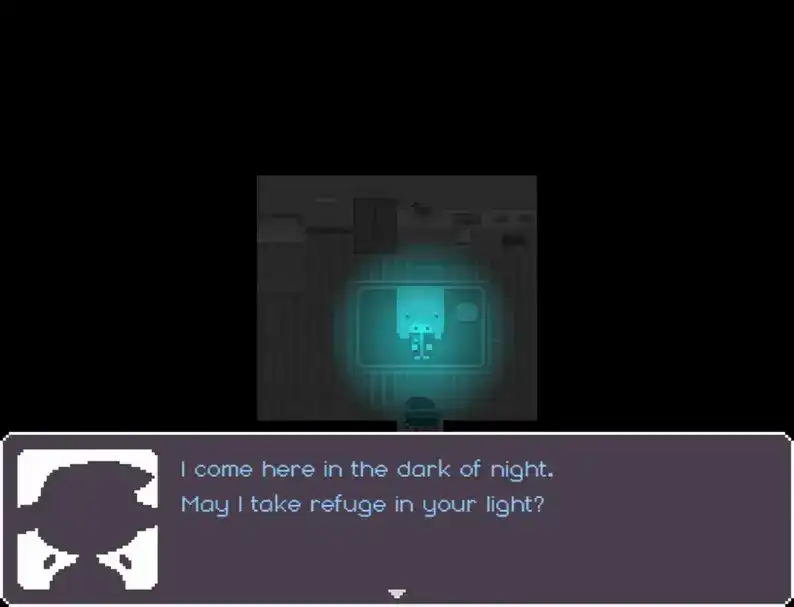I bumped into npckc’s game, one night, hot springs, during Steam’s visual novel sale a few weeks back. After finishing it, I just had to see if there was anything else from the developer. I was pleasantly surprised to find they've made so many little games similarly simple yet touching.
All the games I’ve played so far have had one central theme in common: identity. They also advertise their games as LGBTQ+ friendly, and I can say for a fact they certainly are. As for the artwork, not only is it cute, but it is also uniquely different in each game. The soundtracks stay in the background and out of the way.
For those who have little time to spare on long, drawn-out games, rest assured that each of npckc’s works are each only half an hour’s worth of game time max.
Let's Relax: The Trilogy
One night, hot springs is the first game of a trilogy. The visual novel game follows Haru, a transgender woman in Japan. Her best friend’s birthday is coming up, and she is invited to go to the hot springs with one other friend. You get to choose how Haru responds for the night, which can lead to seven different endings.
The obstacles presented in one night, hot springs might be something that others deal with on a daily basis, and npckc handles them with great tact and care. As mentioned on their site, these games are only meant to reflect what it is like to be transgender in Japan.
The game's follow-up, last day of spring, follows one of Haru's friends, Erika, who ends up getting to know Haru after they return from the hot springs. And the third game of the trilogy, called spring leaves no flowers, follows Manami, Haru’s best friend.
I won’t get into the details, but if you enjoyed one night, hot springs, the extra installments give more definition to the girls’ relationships with each other. Even with just half an hour each, npckc was able to form a storyline that served to be educational and validating, giving players a brighter option for LGBTQ+ narratives than the ones that tend to circulate the mainstream market today.
Tea Or Coffee?
Tavern for Tea is a short visual novel simulation where you — wait for it — serve tea. The tavern welcomes those who don’t feel quite like the image they put out for the public to see. The patrons are encouraged to sit down and chill with a hot cup of tea made especially for them, with ingredients adjusted to the tea-drinker's tastes and mood.
There’s only two characters (three including yourself), and you’ll find out who they really are after a few cups of tea and a few tries with different ingredients. The game encourages errors, what with the “notes” page in the hamburger menu on the lower left corner. Whenever you hit one of the “endings”, you get to start back at day one, with new dialogue every time until you get the true ending.
It was a cute game where I could enjoy mixing a combination of ingredients I hadn't tried and see what kind of brews my efforts would result in, despite not being able to serve them during the story (or else it’d be back to day one).
Another game that has a similar barista theme is Penguin Café, with an even shorter playtime.In this game, however, the player is a socially awkward customer waiting for a date to show up. While waiting, the barista comes by and provides coffee and small talk.
Where Tavern for Tea was an ambitious week, Penguin Café was a quiet and warm moment. This one made me smile as I hovered between “options” that showcased the customer’s thoughts — which were usually said aloud anyway.
Npckc decided to use answer options more as a prompt to continue the dialogue, further highlighted by the fact that you had to hover over them to see what they said. It's a creative way to use the mechanic for storytelling.
I felt like npckc specifically added a clicker game feature just for me, as if they knew I can’t help myself (I just have to click).
Now For The Witching Hour
Lilac & her light is about a girl who has a strange power: everything she touches turns gray. Because of that, she locked herself in her home for a whole year to protect the rest of the world from her grayness. Through some coincidence and a magical torch called witchlight, Lilac meets a witch who asks for refuge during the witching hour.
Lilac & her light embodies themes of identity and mental illness. The feel of the story is a little more mature and less lighthearted than the barista games. It instead has more in common with one night, hot springs, minus the mental illness.
The dialogue points to some contemporary issues if you look hard enough, but differences are set aside as the characters own up to their mistakes. Sometimes I wish life could be that easy in the real world. The ending was incredibly satisfying, explaining mental illness plainly with magic-related metaphors.
A Little Something To Brighten Your Day
Npckc have proven themselves to be capable of making short and sweet narratives, especially around stigmatized topics, for those who need them. Like the mood-adjusted brews in Tavern for Tea, these games are made just right for whatever the player needs, even if they don’t think that’s what they’re looking for.
I am most impressed with npckc’s ability to establish their point easily and respectfully in each game, encouraging understanding instead of inviting argument. And for all the effort they’ve put into these games, they’re all free to download — but they accept donations, which I strongly encourage, to thank them for these wonderful pieces of art.





